Wellington has always been proud of its live music scene, but in the last few years it's seen a number of high profile venue closures and is often passed up by touring international acts. Jack Barlow asks, "What's up with the Capital's music venues?"
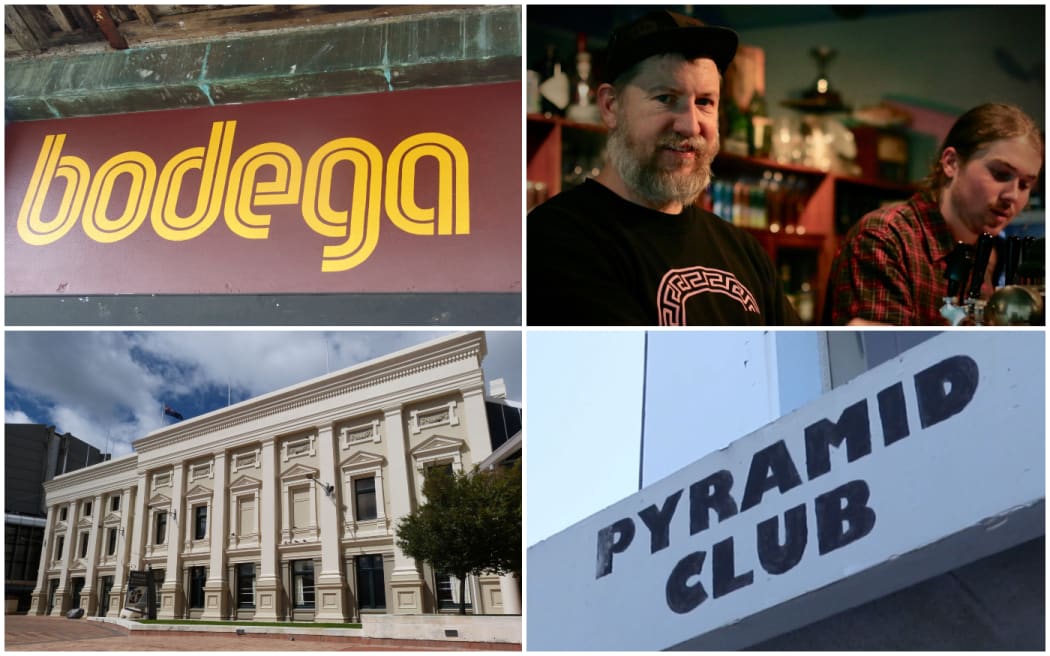
Clockwise from top left: the now closed Bodega, Damian Jones (owner of Caroline and Meow), experimental venue Pyramid Club, Wellington Town Hall - currently closed for earthquake strengthening Photo: RNZ
Fat Freddy's Drop. The Phoenix Foundation. The Warratahs. There's a reason Wellington's proud of its music scene, having produced some of the country's most important acts and fostered one of its most vibrant and artist-friendly hubs.
But hang on a second. In recent years there have been rumblings of discontent. Venues have closed, bands have relocated and, perhaps most publicly, international acts have increasingly skipped over the city.
It quickly becomes apparent that trying to summarise the state of Wellington's music scene is a nigh-on impossible thing to do. It's also clear that a lot of it boils down to venues, the lifeblood of any live music scene. Are there enough? Is there a big enough mix, attracting overseas talent and also allowing local acts to thrive?
Why are bands skipping town?
One thing's for certain: some international acts are conspicuously giving the capital a miss. Earlier in the year, Ed Sheeran skipped over the capital completely, with his promoter telling media the problem lay with a lack of suitable venues.
Wellington's struggle to provide venues is no secret: a 2016 Wellington City Council report even said the city's reputation as a friendly place for performing artists was “perceived to be under threat”. The same report pointed to a lack of mid-size venues, high venue hire prices and the closure of the town hall as particular points for concern.
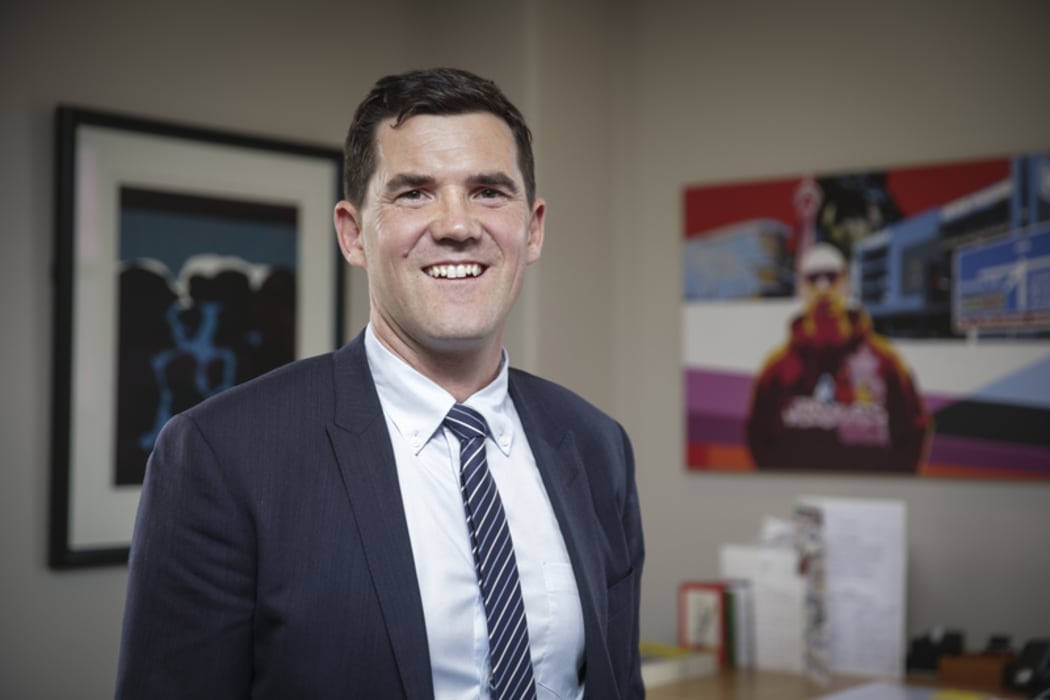
Photo: RNZ / Rebekah Parsons-King
That was two years ago. Wellington mayor Justin Lester says the council has made progress since, citing the $127 million earmarked for arts funding in its latest long-term plan.
“We're investing in a range of venues across the city,” he says. “That includes the Town Hall, which is going to become a permanent venue for the NZSO [New Zealand Symphony Orchestra] and Te Kōkī, the New Zealand School of Music, in association with Victoria University. We'll also be upgrading the St. James Theatre, hoping it'll be more of a hub.”
Lester acknowledges the lack of mid-sized venues is less than ideal, though he points to the council's plan to build a 12,000 seat indoor arena as a step in the right direction. Just when that arena will be built is uncertain, though some reports have given 2021 as its construction date.
“These things do take time,” Lester says. “We have a concept plan in place and we're working on the location, and we're hoping before Christmas we'll be able to come to the public with another update.”
“[Having a vibrant music scene] is really important for me, and I think it's important for a vast range of Wellingtonians. I love going to see live music, and especially love seeing some of the smaller [shows], and we're focused on making sure we can help deliver those.”
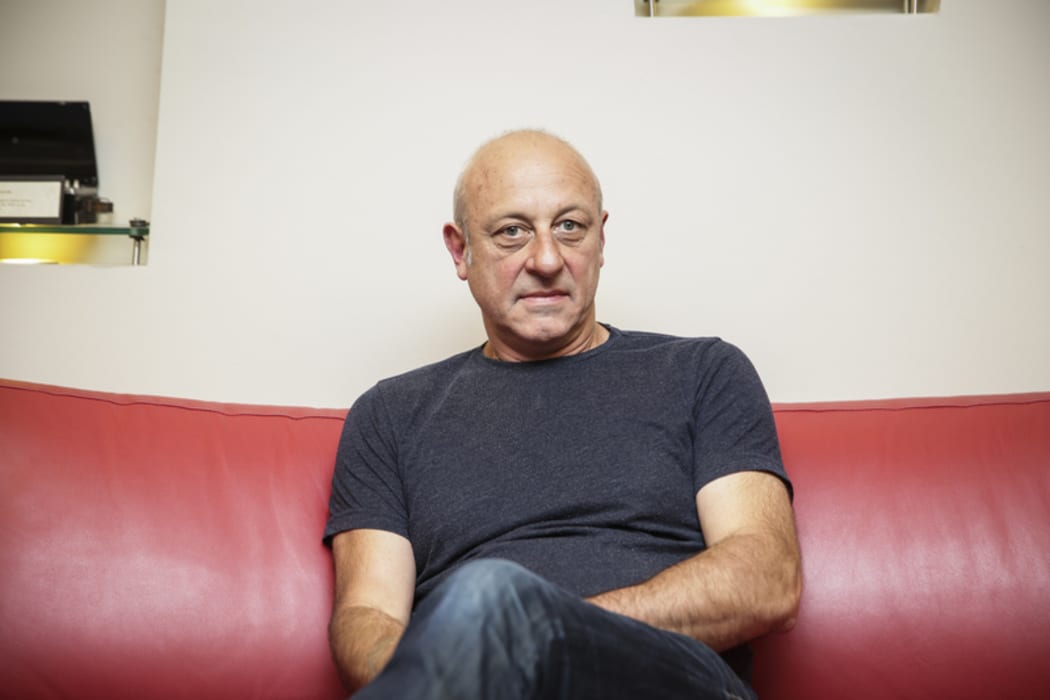
Murray Hepple. Photo: RNZ / Rebekah Parsons-King
Still, several promoters say the problem is not just the lack of a 12,000-seat stadium. Murray Hepple, former co-owner of defunct Wellington venue Bodega, says the lack of venues around the 1000-seat mark is a large part of why bands tend to pass the capital by.
Hepple says that venues San Fran and Meow, which hold around 300 people, are great but don't really have the capacity for internationals …
“What we really need is a Powerstation-sized venue in Wellington.”
Hepple also cites high venue hire fees as a particular issue, saying it's much cheaper to hire venues in Auckland or Christchurch.
“There were also times we struggled to sell tickets in Wellington, which is the population base, perhaps,” he says. “When we first took Bodega over we were comparable to Auckland - we would look at venues like the King's Arms and we'd be on par, which is quite good for a population that's about a sixth of Auckland's. But towards the end of the decade, we were way down on Auckland ticket sales.”
Hepple says part of the problem isn't just a Wellington issue: going to gigs may not be as essential as it once was.
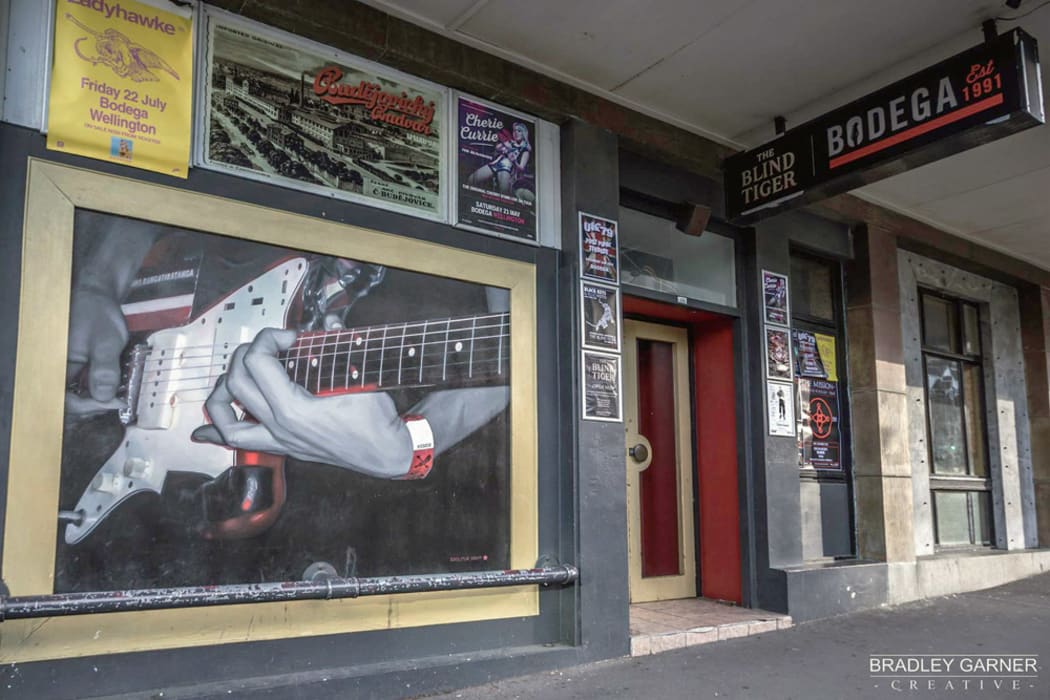
Bodega 2016 Photo: supplied
“[The shows] that did quite well were ones with an older demographic,” he says. “The Buzzcocks and all that would sell well, while some of the more indie stuff would struggle. There are more things at people's disposal these days. I think, for the younger generation, going to gigs is probably not the be-all-to-end-all it was for the Buzzcocks' generation.”
While some say there's a definite lack of venues others claim existing venues aren't fully utilised, particularly where larger council-owned facilities are concerned. It's an issue that's further complicated by several of the council spaces – which, incidentally, charge flexible hireage fees – being subject to earthquake-strengthening closures.
Tim Ward co-owns San Fran and now manages the 1000-capacity Hunter Lounge, which has a rich musical history stretching back to the early '70s when the likes of Split Enz and Dragon would perform there. Since its resurrection in the past few years, it has hosted concerts by Marlon Williams, Unknown Mortal Orchestra and Beastwars, as well as international acts Stormzy and Amy Shark.
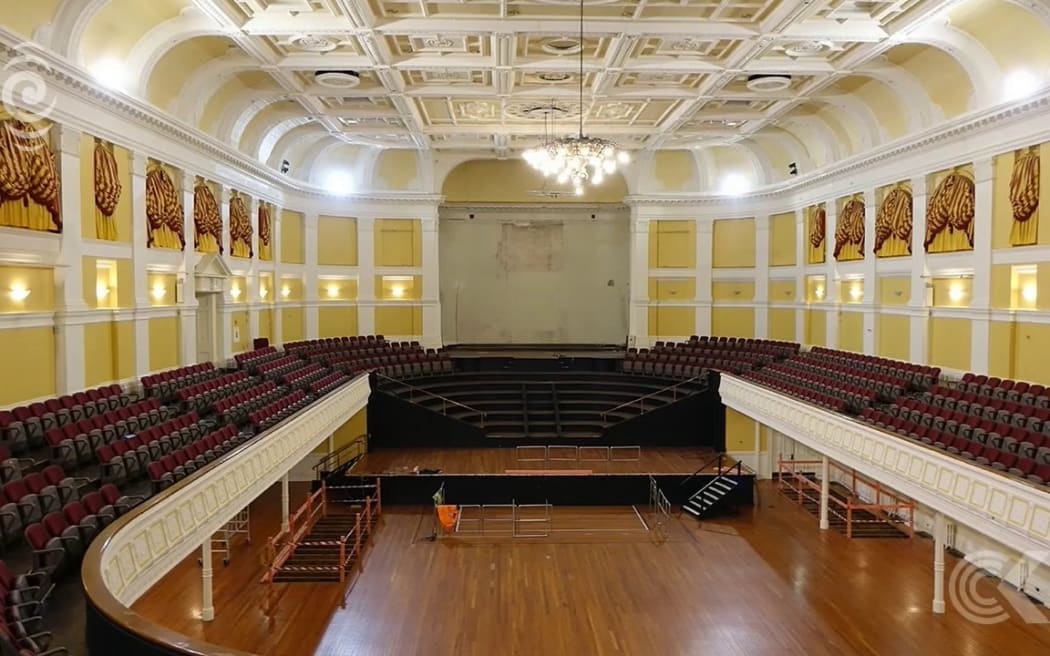
Wellington Town Hall refurbish balloons to $90 million Photo: RNZ / YouTube
He says part of the decision to resurrect the Hunter Lounge as a venue was the closure of the Town Hall and the imminent closure of the St. James Theatre, both council-owned venues that attracted international acts.
“We had seen a number of acts going through San Fran that were selling out,” he says. “Bar Bodega had recently closed and it just felt like a necessary thing to provide more performance space.”
But it has been noted that being in a capacity crowd at the Hunter Lounge can be an uncomfortable experience. It’s a survival-of-the-tallest situation, and the lack of seating has been a complaint of older punters.
Ward acknowledges that the Hunter Lounge is not an all-purpose solution. Promoters will always want a slightly different number to the venues available. I completely agree that it would be wonderful to have something in the 1000 to 2000 mark, which could also be seated.”
Despite the challenges, Ward maintains a generally positive outlook.
“The music industry is always a challenging one to work within, it's constantly kind of a moving feast,” he says. “At the moment we feel really strong and really confident about how we contribute to it, and we think it's in a fairly good place.”
On the ground
Touring bands are one thing, but how local bands are faring is a different matter. The city faced an alarming string of venue closures several years ago with Mighty Mighty, Puppies and Bodega closing permanently, and the popular San Francisco Bath House shutting for earthquake strengthening.
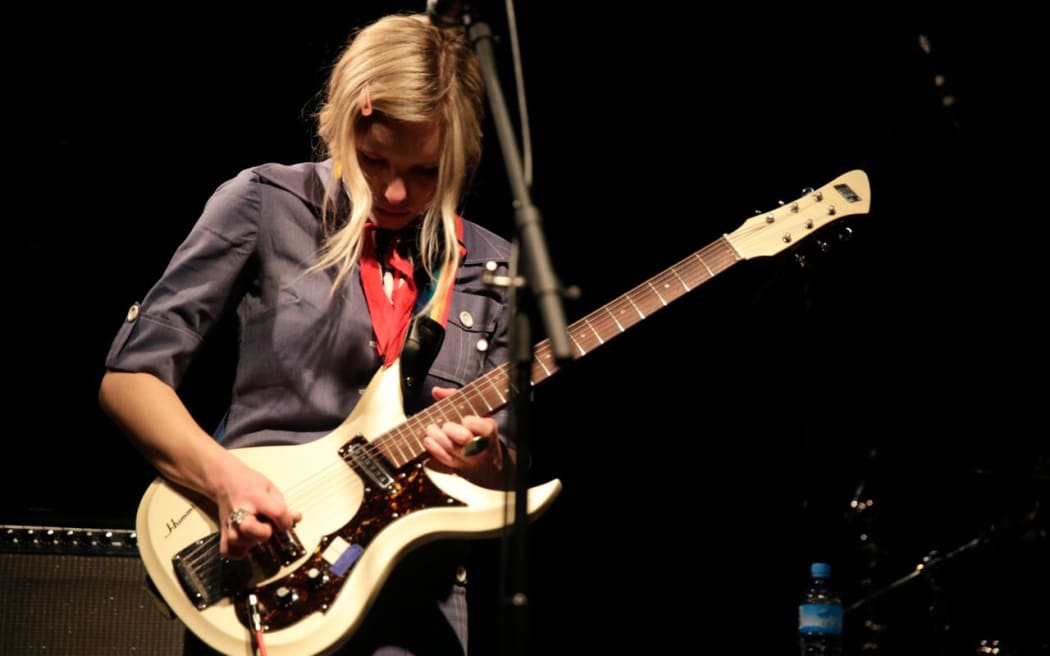
Mermaidens - Gussie Larkin Photo: Ezra Simons/RNZ
Gussie Larkin from Mermaidens says while the closures felt ominous at the time, people soon found a way to fill the gap they left: “There was a period where ... it all seemed like it was over, but actually you can't kill a scene like that,” she says.
Smaller live gigs shifted from venues to houses. House parties had always existed, with an informal house party scene rising and falling over the years, but in the wake of the closures an increasingly organised network of them popped up. Spurred in large part by the Eyegum collective, Wellington's younger bands transferred their talents from the stage to the living room.
“There were flats on Ghuznee Street, in Miramar, big flats that were essentially venues,” Larkin says. “Those were the grass roots of the community, in a way. It could seem from the outside that the music scene had a down period at that time, but actually there were just as many people who wanted to find a way to see music. And they did.”
By most accounts the organised house party scene eventually imploded, but it served a vital purpose as growing bands found an outlet to thrive.
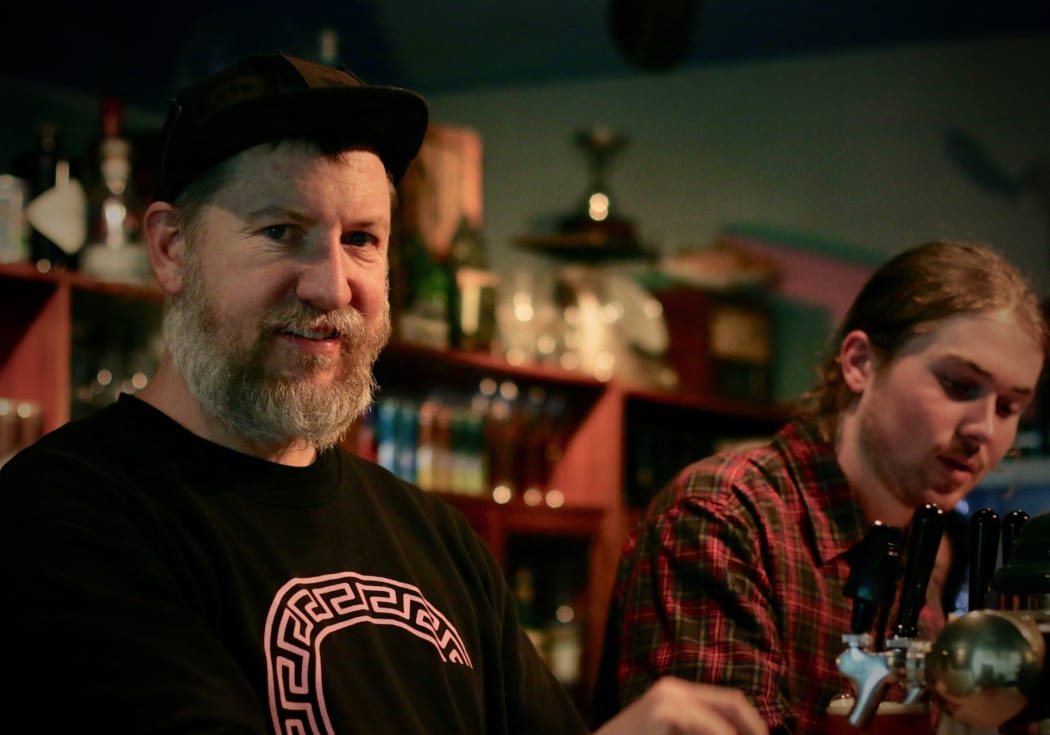
Damian Jones, owner of Caroline and Meow Photo: RNZ/Kirsten Johnstone
While few say the current venue situation is ideal there's a general agreement that, for local bands at least, there's an arrangement that's working. Meow is a particular favourite, while the revamped San Fran is a regular for slightly bigger acts.
There are venues around which hold around 50-150 people and cater to niche music scenes - there’s Caroline, which hosts an eclectic mix of indie acts, metal venue Valhalla, Rogue & Vagabond where you’ll usually find a jazz band, the experimental Pyramid Club and several others dotted around central Wellington.
Damian Jones owns Caroline and Meow, two of Wellington's most well-utilised venues. Running a music-centric venue, he says, isn't something to get into if you're looking to make bundles of money.
“I've got an extremely patient family that allows me to… extend the mortgage often, to be blunt,” he says, with a laugh. “There's not really any money in live music but it's something I'm really into. It's definitely not a get rich quick scene.”
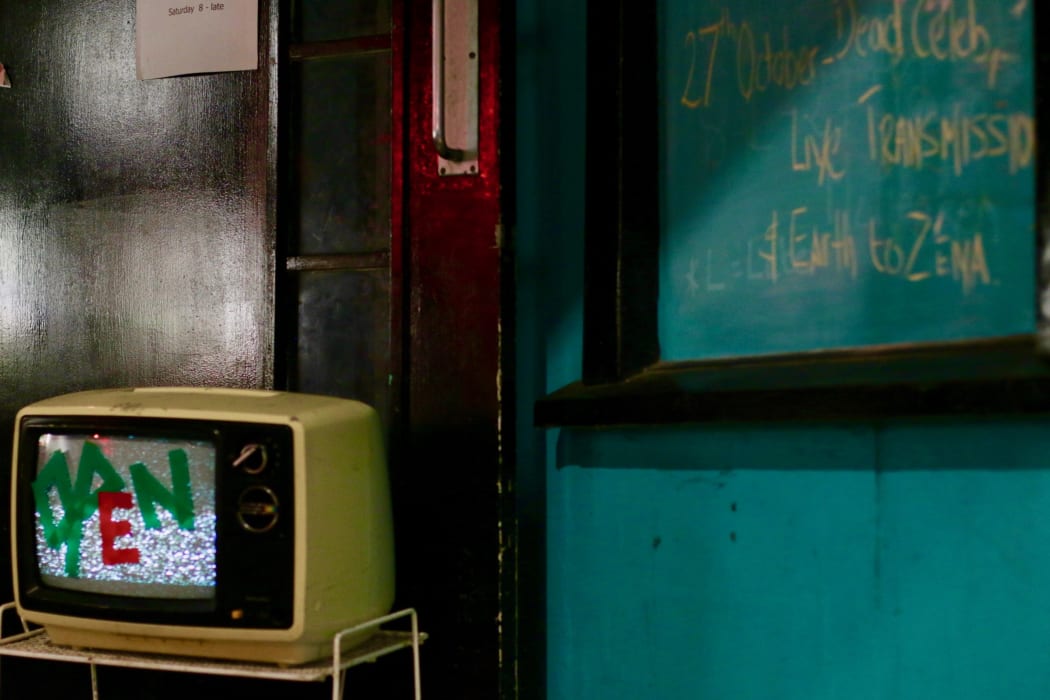
Wellington music venue, Caroline Photo: RNZ/Kirsten Johnstone

